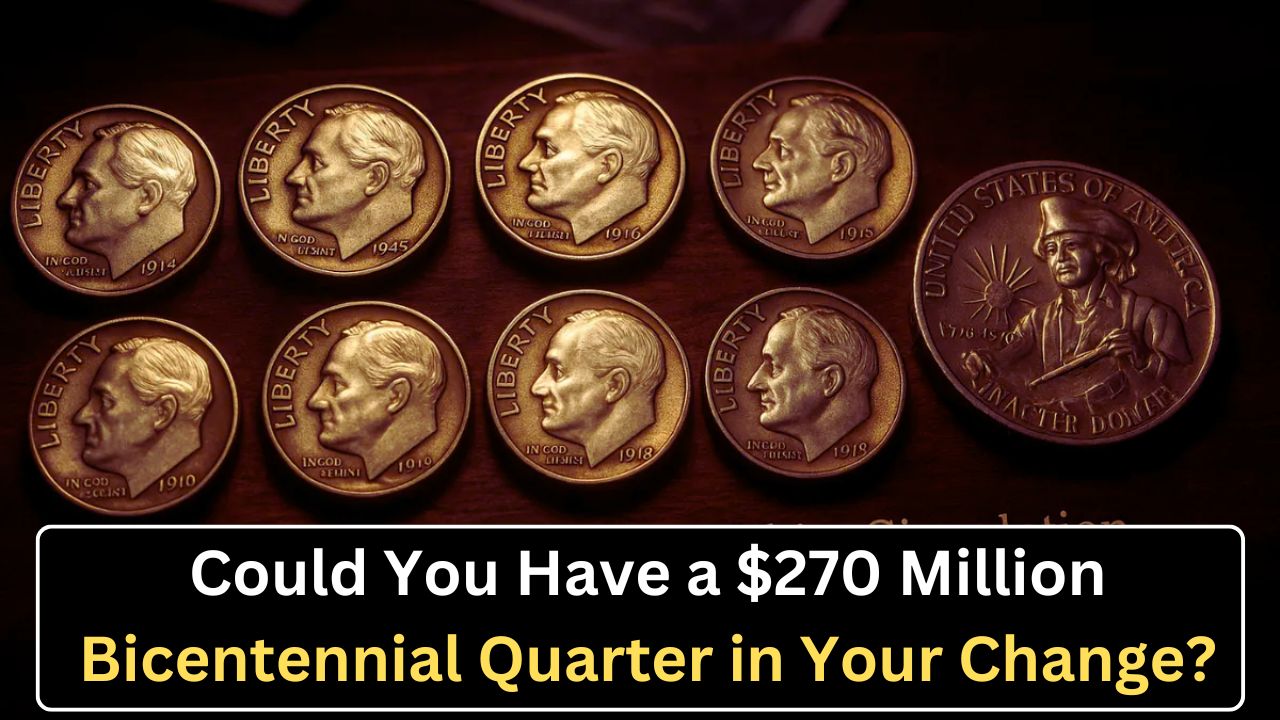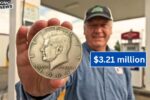Imagine finding a quarter worth $270 million in your pocket! The 1976 Bicentennial quarters, minted to celebrate America’s 200th birthday, are common, but wild rumors claim eight ultra-rare versions could be worth that much and are still in circulation. While no coin has sold for $270 million, certain Bicentennial quarters with unique errors or features can fetch thousands or even millions. Here’s what to know about these eight rare coins and how to spot them.
The Bicentennial Quarter Basics
From 1975 to 1976, the U.S. Mint made over 1.6 billion Bicentennial quarters, marked with a “1776-1976” date and a drummer boy on the back. Most are clad (copper and nickel), but some San Francisco-minted coins are 40% silver, which makes them more valuable. These quarters were struck in Philadelphia (P), Denver (D), and San Francisco (S). Rare errors like doubled dies or missing mint marks can turn them into collector’s dreams.
The $270 Million Myth
Claims of Bicentennial quarters worth $270 million each are likely exaggerated. No verified sales support this price. However, some quarters have sold for big money, like a 1976-S silver proof quarter that went for $19,200. Errors like doubled dies or “mule” coins (mismatched designs) can reach up to $45 million in rare cases. The $270 million figure may come from unconfirmed stories or confusion with other coins, but checking your change is still worth it.
Eight Rare Features to Look For
Experts point to eight rare traits that could make a Bicentennial quarter valuable. These include:
- Doubled die obverse (blurry or doubled lettering)
- Missing mint mark on a silver coin
- Mule error (wrong front or back design)
- Off-center strike (design not centered)
- 40% silver with no mint mark
- Proof coin in circulation (shiny, mirror-like finish)
- High-grade MS-70 condition (perfect, no wear)
- Unique die cracks (unusual lines or marks).
These errors are rare but could make a quarter worth thousands or millions if found in top condition. Use a magnifying glass to check the date, lettering, and drummer design.
Where to Hunt for These Coins
These rare quarters could be hiding in your wallet, coin jar, or change from the store. Check bank rolls, vending machines, or old piggy banks. Since over 860 million were minted in Denver and 809 million in Philadelphia, finding one of these eight rarities is like finding a needle in a haystack. If you think you’ve got a winner, don’t clean it—cleaning hurts its value. Take it to a coin dealer or grading service like PCGS for appraisal. Auctions are the best way to sell a valuable coin.
Why Collectors Are Crazy for Them
As America’s 250th anniversary approaches in 2026, Bicentennial quarters are gaining popularity. Their drummer boy design and historical significance make them special. Silver coins and error versions are extra rare, driving up their value. Even if the $270 million price is a tall tale, finding one of these eight rare quarters could still make you rich, making the search exciting for collectors and casual hunters alike.
| Feature | Details | Potential Value |
|---|---|---|
| Doubled Die | Blurry or doubled lettering | $19,000–$45 million |
| Missing Mint Mark | No mint mark on silver coin | Up to $45 million |
| Mule Error | Mismatched front/back designs | Up to $45 million |
| Off-Center Strike | Design not centered | $500–$10,000 |
| Silver No Mint Mark | 40% silver, no mint mark | $1,000–$50,000 |
| Proof in Circulation | Shiny, mirror-like finish | $100–$5,000 |
| MS-70 Grade | Perfect condition | Thousands to millions |
| Die Cracks | Unusual lines or marks | $500–$10,000 |
Don’t overlook your loose change! While a $270 million quarter may be a myth, one of these eight rare Bicentennial quarters could still bring a fortune. Grab a magnifying glass and start hunting today—you might just strike it rich!




